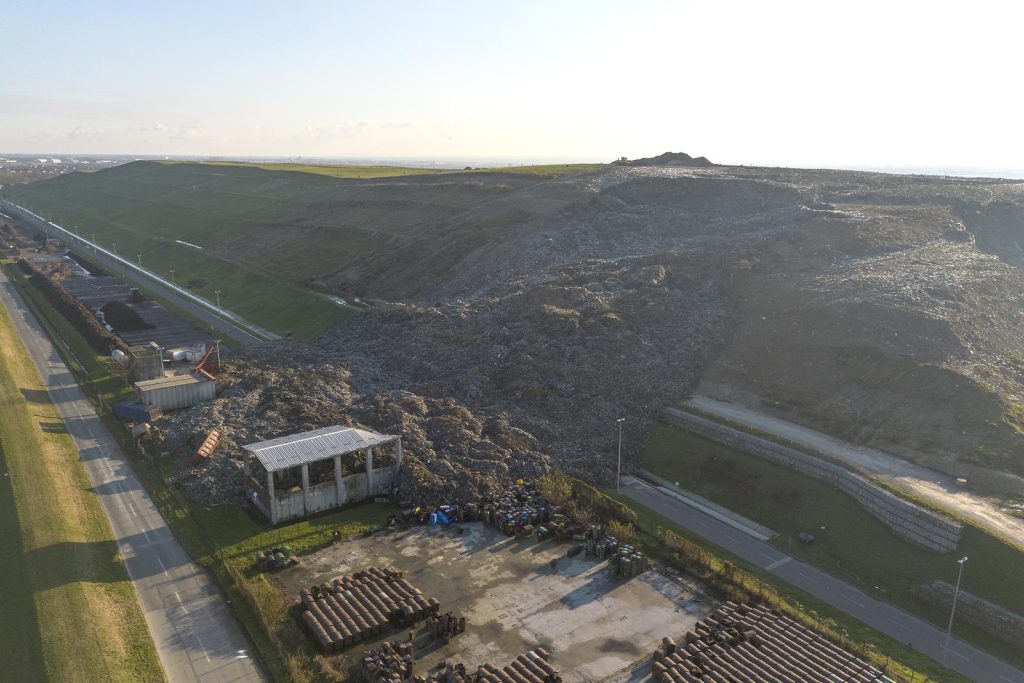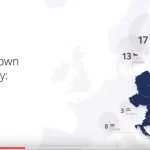February the 4th, 2024 – The Croatian company DOK-ING has produced a machine which can create hydrogen from organic waste material.
As Poslovni Dnevnik writes, one of the most important environmental questions of the moment is how we might dispose of waste without endangering human health. We’re also dealing with the very sharp division between those who are in favour of the thermal gasification of almost all types of waste, and those who would much prefer composting. It’s among the most burning issues plaguing Croatian cities, with Zagreb at the forefront.
One of the innovative solutions that received the green light from the EU is currently being offered almost right in front of our noses. The remarkable Croatian company DOK-ING, in cooperation with the Faculty of Civil Engineering, has created a “device for the production of hydrogen from organic residual material”, as reported by HRT.
“We take everything that is unusable and create new value from it – energy” says the Croatian company DOK-ING
“Everything that can be used, returned or restored according to the hierarchy of waste management – should be. We came up with a machine to transform landfills into something better than their current state. We take over and create new added value from so-called unusable items in the form of energy,” explained Vjekoslav Majetić of the Croatian company DOK-ING.
“We don’t use incinerators“
“Incinerators are used in plants that reduce the mass of material by burning it during waste processing. Burning emits a lot of undesirable substances out into the environment, and our plant works on the principle of dry distillation. We heat up the organic material to a certain temperature, where it decomposes into solid and gaseous components through a thermo-chemical process. From that gaseous component, we end up with something that is “popular” today, and that’s hydrogen. We obtain that hydrogen from over 70% of these individual materials, which we can further use as fuel, or for anything else we might need,” explained Majetić.
Professor Dražen Vouk from the Faculty of Civil Engineering in Zagreb added that the connection between academia and industry contributes to more efficient economic development.
“The Croatian company DOK-ING has recognised the capacities of the academic community and has actively cooperated with the University of Zagreb and its constituents for many years. Through the application of several scientific and research projects, it has encouraged further cooperation to try to contribute to the innovative development of new technologies through scientific and research work. One of them is this waste processing plant,” stated Vouk.
The role of the Faculty of Civil Engineering
“The role of the Faculty of Civil Engineering in collaboration with the Croatian company DOK-ING is to use gasification technology to process sludge from purification devices. This is a type of waste that causes a lot of concern, not only here in Croatia, but across the world,” explained the professor.
“The results of the scientific and research work that we’ve successfully implemented for four years in cooperation with DOK-ING indicates that a technological solution like this could significantly contribute to the more efficient disposal of this type of waste,” said Vouk, adding that the technology itself generates synthesis gas on one hand, and on the other hand, a solid residue.
There’s considerable interest, especially after the problems with Jakuševec…
“Representatives of the City of Zagreb have shown interest, there were also representatives of green actions, there were people who understand that the problem of waste must be solved, there’s simply no other way. Everything that can’t be dealt with in any other way is dealt with through thermal treatment, but not by burning. Thermo-chemical treatment can be used, where we can dispose of this waste in an ecological way and turn it into a new energy source. There’s a lot of interest, especially after what happened with Jakuševec,” said Majetić.
A plant will soon be installed in a Croatian city…
Majetić revealed that they received support from the EU, but they cannot ask for a certificate before setting up the plant.
“We received a permit from the Ministry of Environmental Protection, so we’ll be setting up a plant in a Croatian city very shortly,” he concluded.










